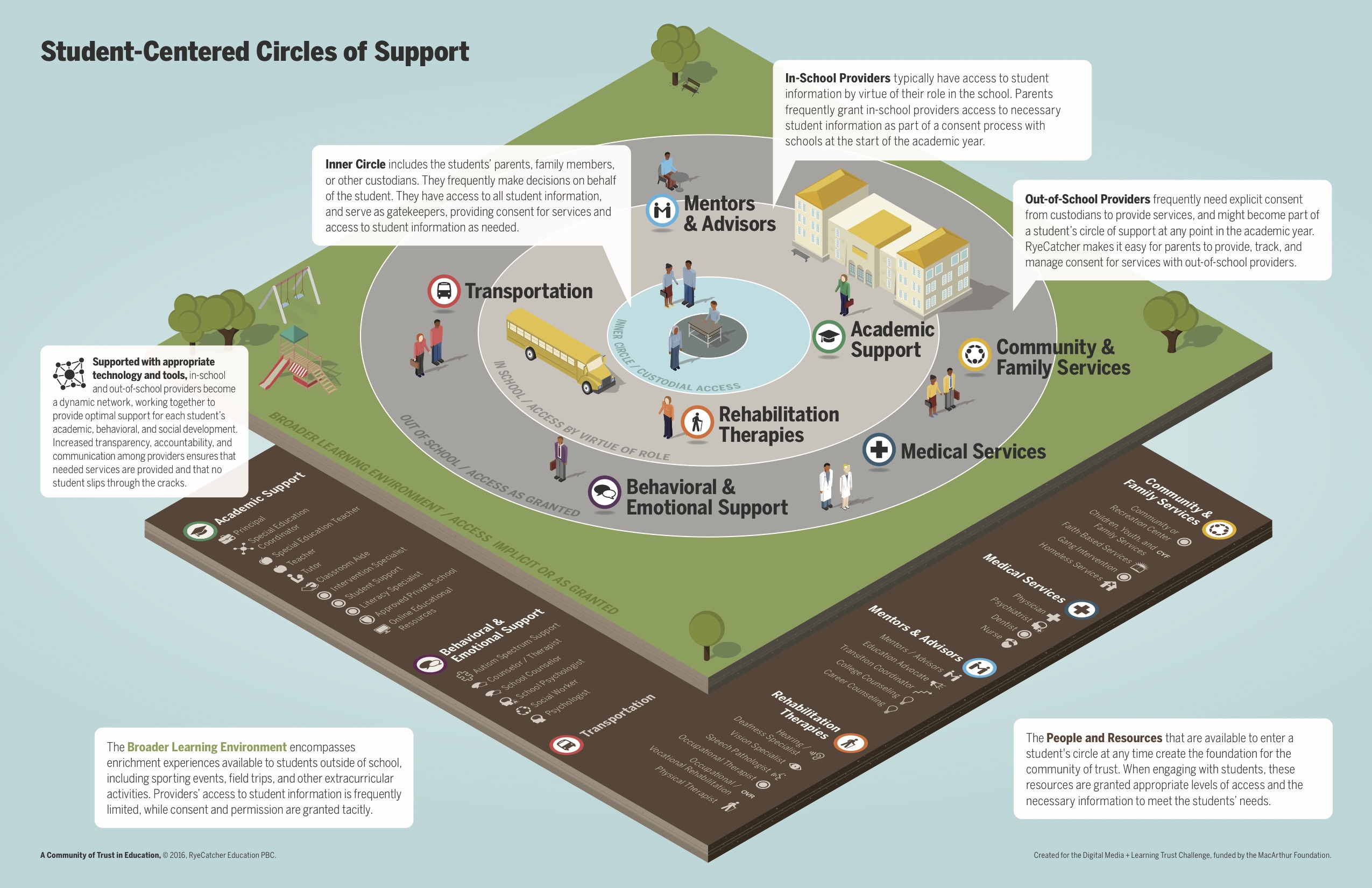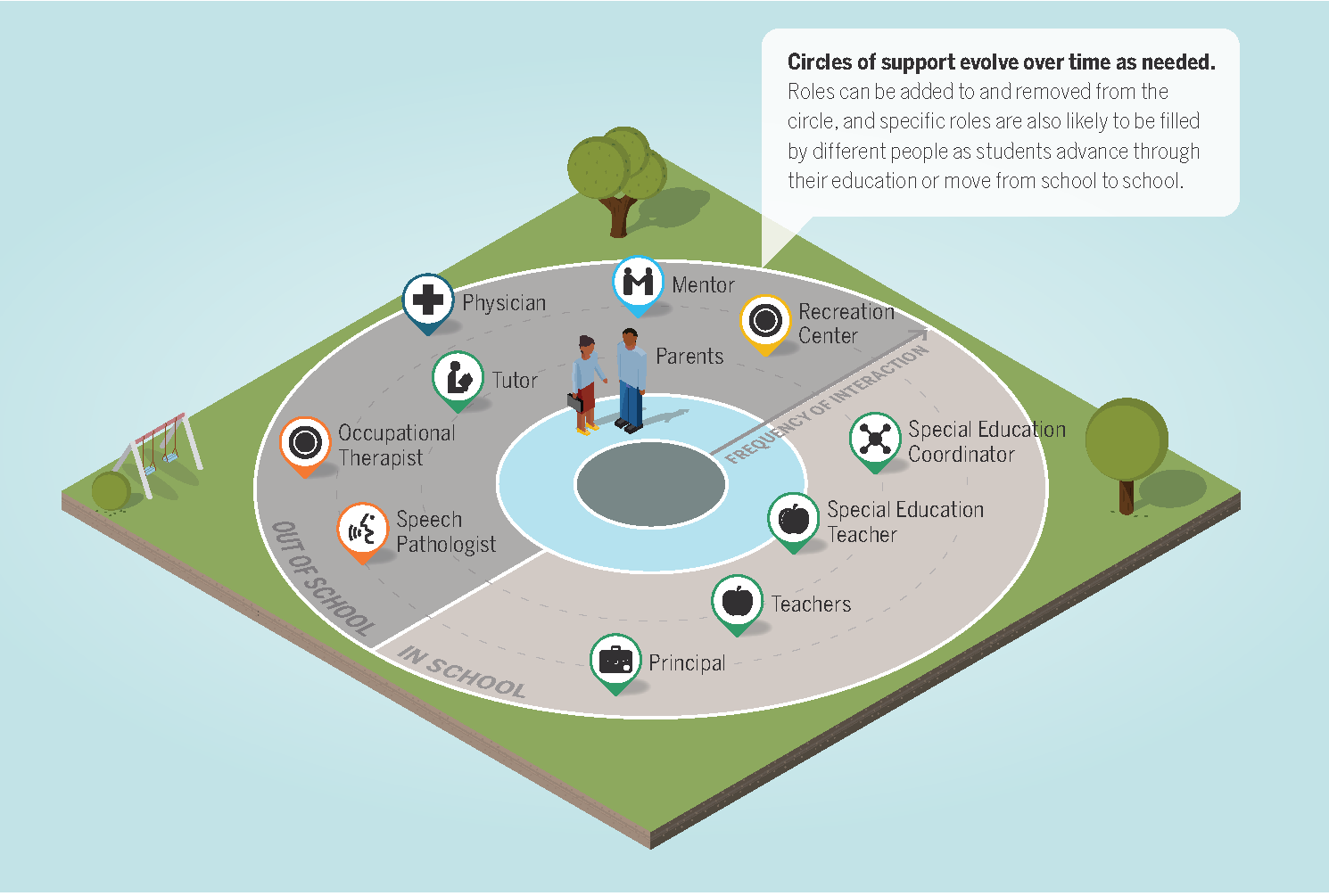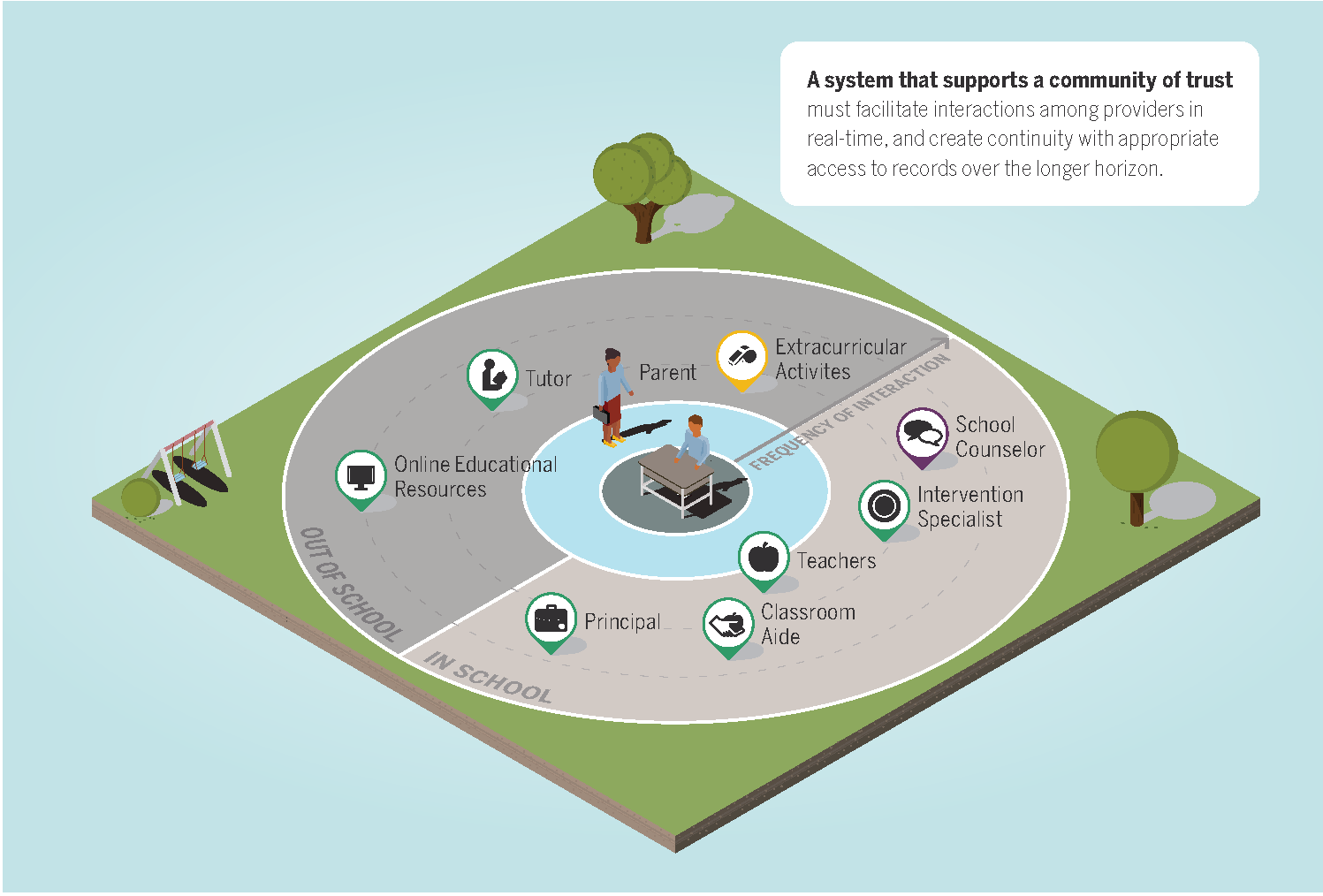
A Community of Trust in Education
The creators of RyeCatcher are working to build a platform that cultivates and supports a community of trust in education. A community of trust is a network of relationships and agreements that facilitates the exchange of information about students among parents, families, schools, and related service providers. At its best, this network allows student data to be shared among trusted participants in a safe, secure, transparent, and auditable environment. The privacy of student data is paramount, and control of data belongs to the student, parents, and family.
An efective trust framework in education empowers parents and families to support students at home through transparency and data access, promotes connections and creates a system of clear accountability, and facilitates collaboration in different environments across a variety of channels and devices. Through ongoing research and enagagement with a broad variety of stakeholders in education, we have identified six key criteria that create conditions for a community of trust to evolve in the context of education.
1. Shared Goals, Clearly Stated
When all parties are confident that they share objectives and are working toward common goals, the foundations of trust are firmly established. This condition represents a significant challenge in education. Parents are fatigued from standardized testing and overwhelmed at the complexity of regulatory requirements, educators question the intentions or methods of policymakers, and stakeholders are frequently unaware of available resources—resulting in a perceived lack of support even when that support exists. An effective trust framework helps reduce or eliminate opportunities for misunderstanding, increases transparency of procedural and regulatory requirements, and establishes clear learning goals for each student.
2. Access to Support and Services
Parents, families, and educators should be aware of support and services available to enhance students’ social, emotional, academic, and behavioral learning. Through its growing a database of service providers, RyeCatcher provides a single source for in-school and out-of-school resources that support learning. Our database connects learners to over 35 categories of service providers, including after-school programs, mentors, advisors, faith-based organizations, community service organizations, education advocates, and recreation centers.
RyeCatcher builds community capacity by mapping resources, identifying needs, and securely connecting families, schools and services. Students’ needs are identified by the people who them know best—families, school support staff, counselors, and social workers. Ideally, students are connected with services before reaching a crisis level, which may ultimately reduce the number of students diagnosed with an educational disability.
3. Visibility into Interventions and Progress
An educational platform can foster trust among members of a student’s circle of support by capturing academic and behavioral interventions and communicating progress over time. Through tracking and reporting the results of specific interventions, RyeCatcher empowers parents and families to engage directly with their children’s action plans. It also provides parents with a contextualized view of procedural information, which may serve to enhance their understanding of complex financial, legal, regulatory, and compliance information.
4. Role-Based Access to Student Information
For a community of trust to exist in education, the underlying technical systems must be secure, maintain the integrity of student data, and be based on a clear set of legal and personal relationships. RyeCatcher maintains a multi-level identity and access management system, and tiered, permission-driven access to data is built into the system. All student data entered by parents and families are accessible to in-school and out-of-school providers only with explicit parent authorization. Troughout our research, parents and families have expressed a strong interest in being able to access a single source of information about which providers are working with their children—and in gaining a better understanding of those providers’ roles and responsibilities, along with the types of information each provider is able to access.
5. Communication and Informed Consent
An important aspect of bringing educators and service providers together with students, parents, and families is providing an effective, usable framework for communication and coordination across those stakeholders. Additionally, as providers and resources are suggested to augment each student’s learning plan, parents need the ability to provide, track, and manage consent for services. Ideally, parental notification, access to information, and the ability to provide consent should be distributed across multiple channels (including SMS, web/email, in person, and on paper), encouraging egagement from all families regardless of access to technology or other circumstantial challenges.
6. Clear, Accessible Records that Follow Students
Reliability is a fundamental facet of trust in any context. For parents, a lack of information or an overload of poorly contextualized information can yield anxiety, stress, and uncertainty, which can ultimately negatively impact student success. For educators, rich information about attempted interventions, outcomes, and other experiences can be lost as students move from school to school. Educators, service providers, parents, and ultimately students all benefit from clear, reliable records that are easily transferred across the students’ academic years.
Example Circles of Support
Special Education Student with a Specific Learning Disability and Cognitive Processing Disorder
Special education students merit specific educational and other resources within and beyond the school. Each role and provider has access to aspects of student data relevant to the support they provide. %The circle of support can change over time according to the student’s needs, with roles added or removed or different providers filling a single role from year to year.


General Education Student with Tiered Intervention Plan
A student with behavioral dificulties might be put on a tiered intervention plan requiring close interaction with an intervention specialist and behavior specialist. For this type of student, tutors and classroom aides play a key role in enforcing and tracking interventions, and participation in extracurricular activities aid in the student’s overall well-being.
